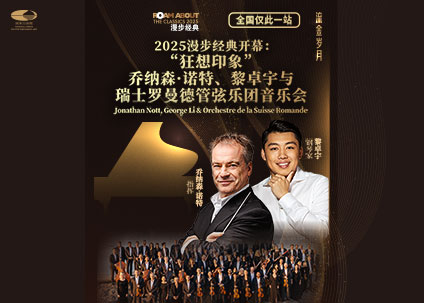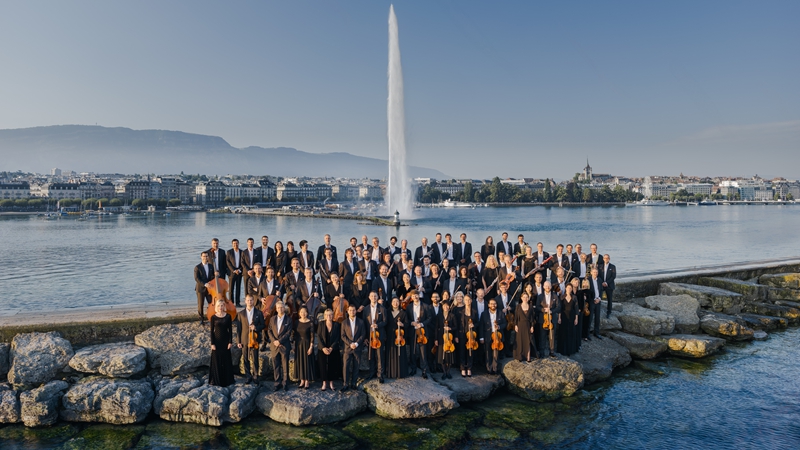
Orchestre de la Suisse Romande
As an important part of the celebrations marking the 75th anniversary of diplomatic relations between China and Switzerland, this concert also carries profound significance for cultural exchange between the two nations. The musicians will present Igor Stravinsky’s Petrushka and The Rite of Spring, both landmark masterpieces that reshaped the musical landscape of the 20th century. In addition, the Orchestre de la Suisse Romande will collaborate with Chinese American pianist George Li to perform Maurice Ravel’s colourful and exuberant Piano Concerto in G Major, commemorating the 150th anniversary of the composer’s birth.
In the upcoming concert, the Orchestre de la Suisse Romande will select two classics by Stravinsky, a fitting choice for an ensemble with deep ties to the composer. Its founder, Ernest Ansermet, was a close friend of Stravinsky, and the three-way relationship between the conductor, orchestra, and composer became an iconic example of artistic collaboration and intellectual exchange in the history of 20th century classical music.
In 1913, Ansermet met Stravinsky in Paris, and the two became close friends because of their shared pursuit for modern music. At that time, Stravinsky was composing The Rite of Spring, and Ansermet’s background in mathematics, with its precise command of complex rhythms, earned the composer’s deep appreciation. In 1918, Ansermet founded the Orchestre de la Suisse Romande in Geneva and led the Orchestra for nearly half a century (1918–1967), shaping it into an ensemble that combined the nuanced colour of French timbre with the structural rigour of the German-Austrian melody. With his profound understanding of musical structure, Ansermet transformed controversial works like The Rite of Spring and The Firebird from scandalous premieres into cherished masterpieces of the modern era. Stravinsky once remarked that Ansermet was one of the few conductors who could faithfully realize his rhythmic intentions. Under Ansermet, the orchestra recorded a substantial body of Stravinsky’s works and gave the world premieres of several of the composer’s ballets.
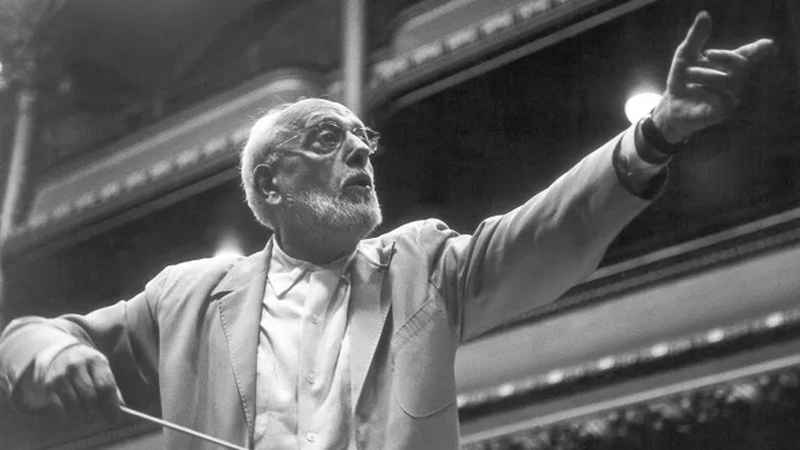
Ernest Ansermet
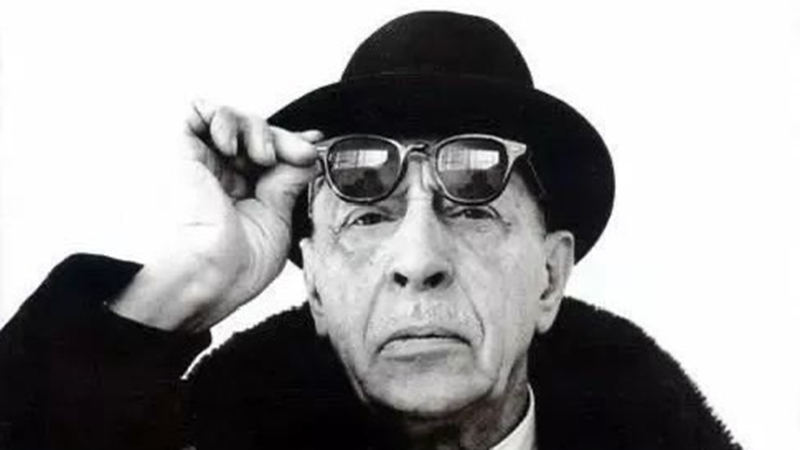
Igor Stravinsky
The opening piece, Petrouchka, was originally composed as a ballet score. Its distinctive style blends Russian folk elements with modern musical techniques, while its rich orchestration creates a sound world of striking colour and tension. Since its premiere, Petrouchka has had a profound influence on the development of music and ballet in the 20th century, cementing Stravinsky’s status as a leading figure of modern music. In 1947, the composer revised the work, but the Orchestre de la Suisse Romande will interpret the original version in this concert. This version uses a larger ensemble, yielding highly inventive sounds, a rich colour palette, and even a hint of luxurious splendour.
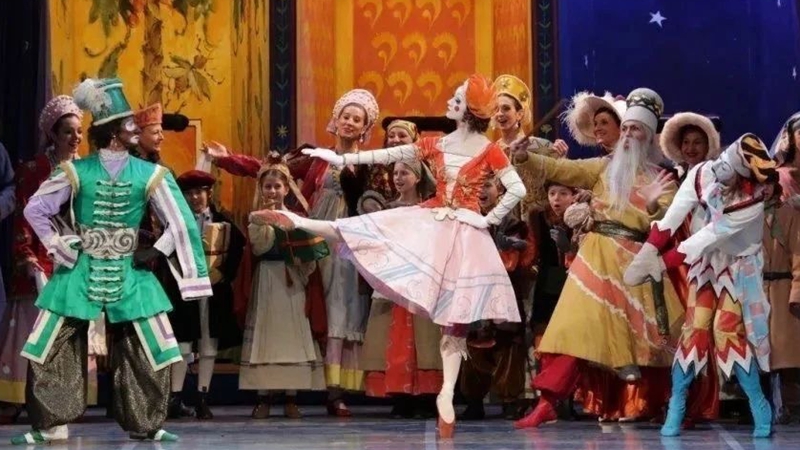
A Still of
Petrouchka
The Rite of Spring is imbued with primal colour and a sense of mystery. To the ear it may seem chaotic, but it is underpinned by an irresistible internal logic. Its rhythmic drive demands absolute precision: the shrill lines of the flute and trumpet may sound untamed, yet beneath them, a clear and relentless pulse is sustained by the bass instruments and drums. Stravinsky himself called this piece the pinnacle of his creative life, a work that embodied his understanding of primitivism and the raw beauty of nature. Conductor Jonathan Nott, when leading this music, once said that these are not mere notes, this is the awakening of ancient blood!
In addition to the two Russian classics, the orchestra will also join forces with Chinese America pianist George Li to perform French composer Ravel’s Piano Concerto in G Major.
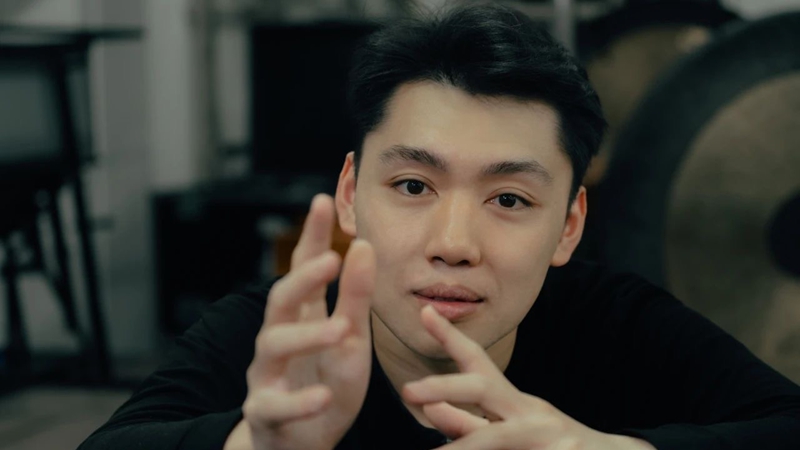
Pianist George Li
Since claiming the Silver Medal at the 2015 International Tchaikovsky Competition, George Li reached a pivotal point in his career. His nuanced emotional depth and commanding virtuosity have brought him international acclaim. During the COVID-19 pandemic, George Li delved deeply into the dance works of Schumann, Ravel, and Stravinsky, and in a series of solo recitals from 2022 to 2024, he demonstrated a mastery of technique and a profound understanding of their rhythmic and emotional character. In the summer of 2024, he released his latest album, Movements, featuring solo piano works by Schumann, Ravel and Stravinsky – a recording that has received critical acclaim.
George Li explained his artistic approach in an interview that the misty beauty of French Impressionism conceals a precision as meticulous as mathematics – much like the eloquent blank spaces in Eastern ink painting. The opening concert of the NCPA’s “Roam About the Classics” series on the night of July 3rd, 2025, will be a true test for these artistic accomplishments.






